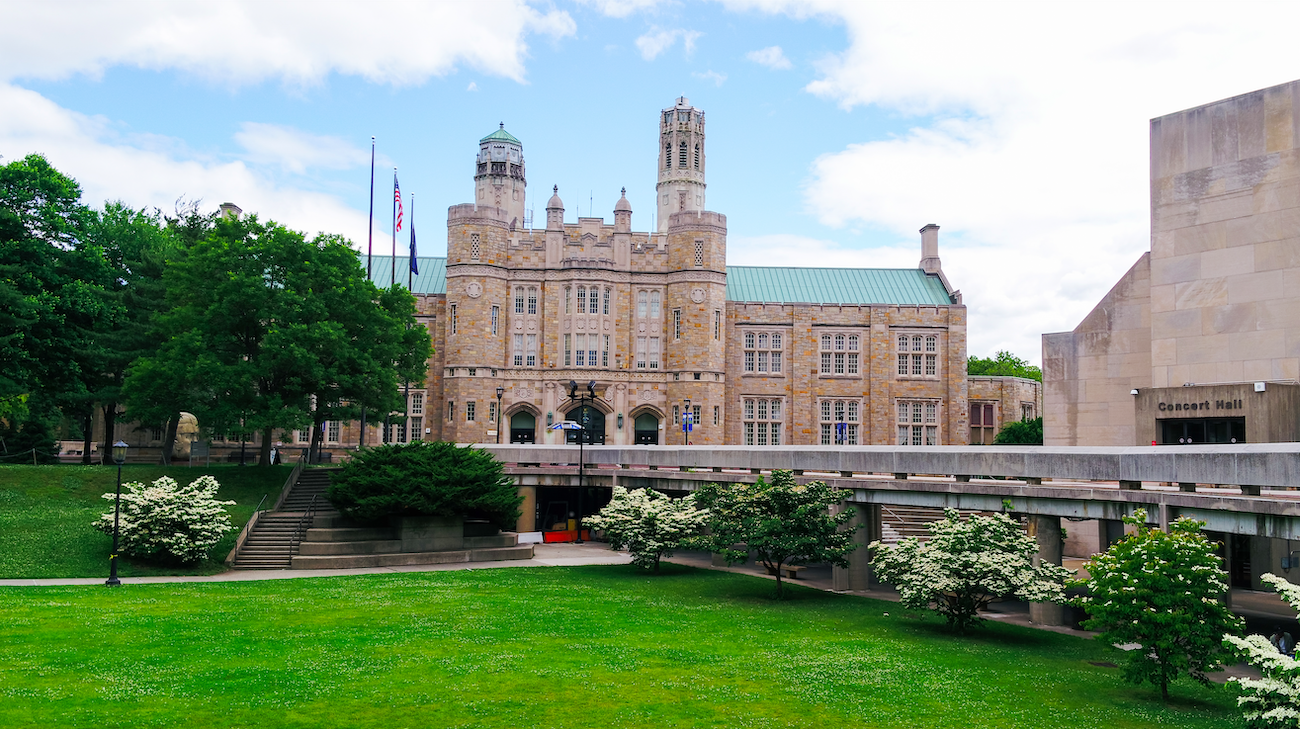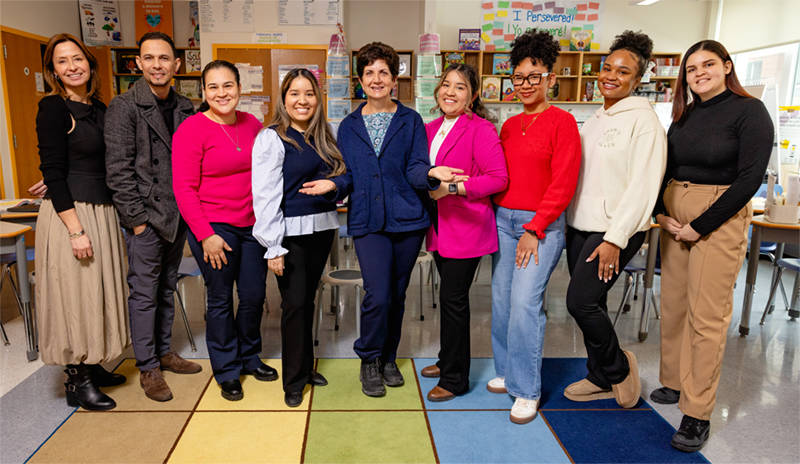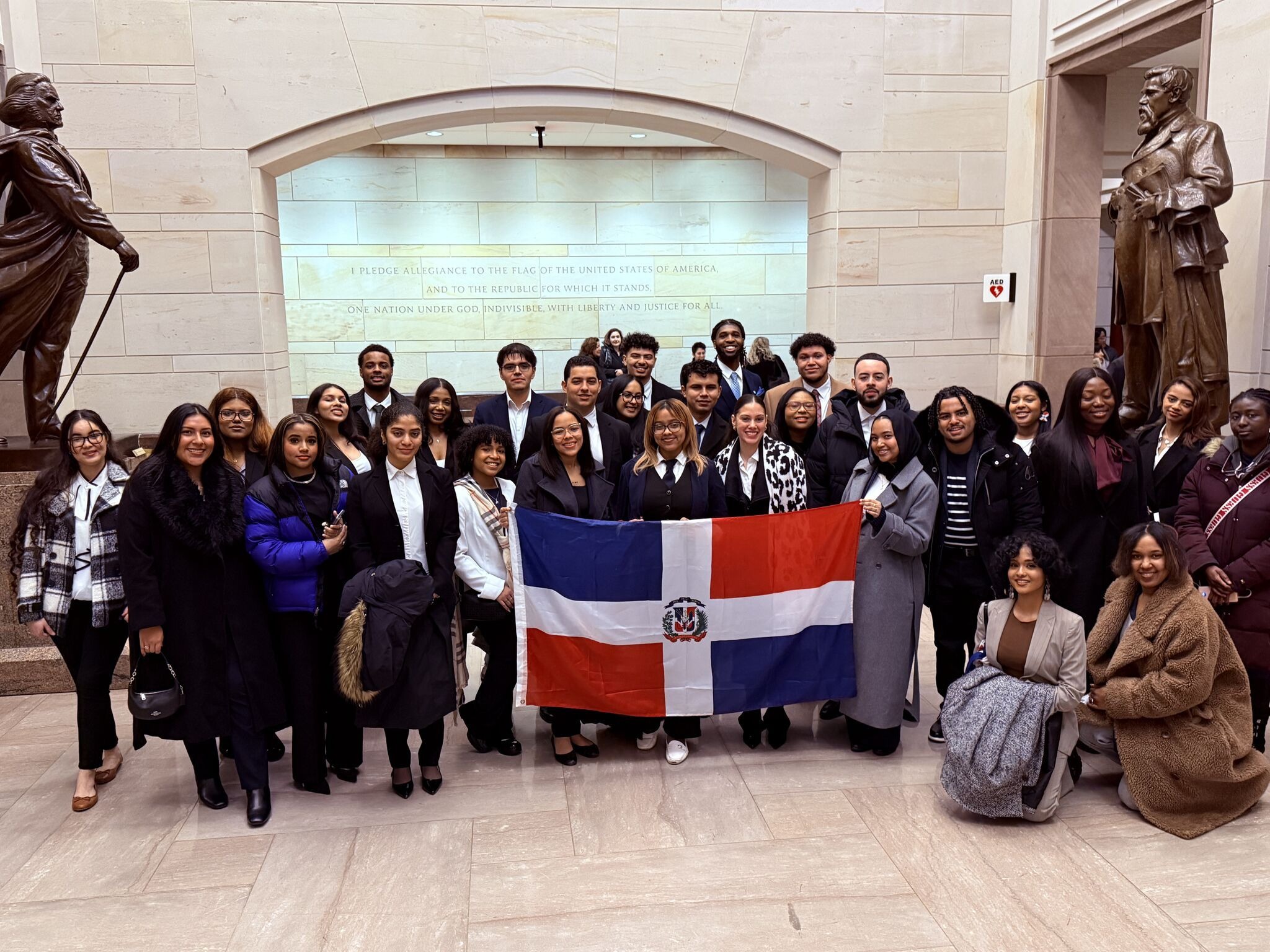- Lehman College >
- News >
- 2024 >
- $4.5 Million For a Healthier Bronx
News
Search All News
Saturday, February 21, 2026
CONTACT
Office Hours
Monday - Friday 9am - 5pmClosed Sat. and Sun.
RELATED STORIES
February 19, 2026
$4.5 Million For a Healthier Bronx

September 16, 2024
Lehman College is putting $4.5 million into eliminating health disparities in the Bronx, thanks to two federal grants that will focus on giving Bronx communities access to quality healthcare providers and instill effective policies and practices throughout the borough.
The grants will strengthen the pipeline of qualified, culturally competent health science professionals, equipping them with both the knowledge and skills to improve public health.
Supported by a $1.25 million grant from the National Institutes of Health (NIH), the CUNY Institute of Health Equity (CIHE), a research and policy thinktank based at Lehman, will oversee a five-year project to develop and pilot a new health sciences curriculum for high school students.
The goal is to increase the number of Bronx high school students who pursue studies and careers in health sciences by engaging students in transformative learning experiences to further understand Bronx’s health disparities.
“In the past decade, understanding health equity and health disparities has become more crucial than ever,” said Maria Isabel Roldós, CIHE director and a faculty member in Lehman’s School of Health Sciences, Human Services, and Nursing. “As a Hispanic-Serving Institution, our campus is uniquely positioned to transform the pipeline of students and professionals entering the research field while also addressing health disparities in our community.”
Roldós will administer the program in conjunction with Hunter College Associate Professor Judith Aponte. Lehman faculty members Drs. Tailisha González, Mia Budescu, and Martin Downing are also involved in the project.
The initiative includes teachers and students at The Marie Curie School for Medicine, Nursing, and Health Professions, who will collaborate with CIHE investigators and Lehman students to develop and test new course curricula. The course material will emphasize research skills and the investigation of local health issues such as diabetes, adolescent mental health, and HIV and STI prevention, as well as public health theory and practice. Acting as “near peers,” the Lehman students will partner with high school counterparts in course exercises and summer research practicums.
“I am excited to work with high school students and teachers to create a lasting impact that will help shape the future of health research and open doors to new career pathways and contribute to the science of health disparities,” said Roldós.
Career pathways are the focus of the Seamless Educational Advancement to Maximize Lehman Student Success program (SEAMLSS), funded by a $3 million U.S. Department of Education Title V grant aimed at strengthening Minority- and Hispanic-Serving Institutions like Lehman. The five-year initiative, designed to help students navigate those pathways to professional positions in the health services field, is based in the School of Health Sciences, Human Services, and Nursing and just wrapped its successful first year.
“We were thrilled to receive this grant,” said Elgloria Harrison, principal investigator and dean of the School of Health Sciences, Human Services, and Nursing. “It has made a huge difference in building soft skills for our students—making them more marketable for the real world of work.”
SEAMLSS offers a host of academic advancement and career advisement opportunities for students who are primarily majoring in the healthcare and human service fields. Among its curricular enhancements are workshops on job searches and professional resume writing, mock job interviews, and academic and career coaching. In the 2023-2024 academic year, the grant supported over 100 students with paid on-campus internships that helped them apply their new skills.
While the grant focus is on student success, it also provides professional development workshops that equip faculty with the tools to create an inclusionary educational environment.
“We are looking forward to year two, with the same goal of providing on- and off-campus internships, faculty workshops on inclusive education, and our summer boot camp that exposes student to the technology they will need for careers in the healthcare workforce once they graduate,” said Harrison. “The support from the SEAMLSS grant has been transformative for many students who would not otherwise have access to these resources.”









